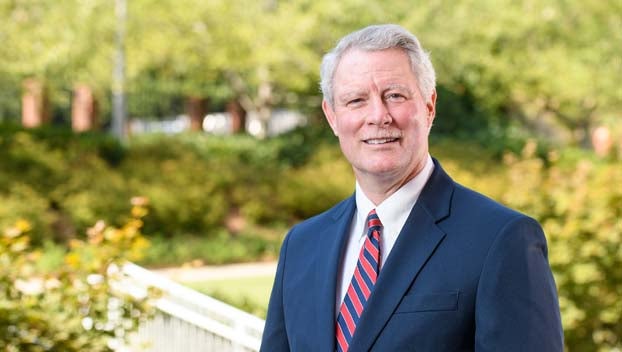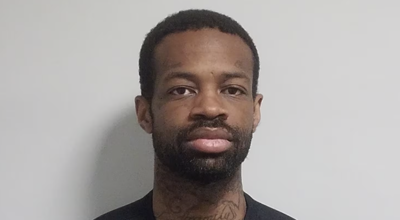‘Very strong suspicion of cronyism’ surrounds Ole Miss chancellor selection, faculty fumes
Published 6:27 am Tuesday, October 8, 2019
By Adam Ganucheau, Mississippi Today
Faculty at the University of Mississippi are fuming over the decision to hire Glenn Boyce as the university’s next chancellor, causing some to openly question whether Boyce should resign and whether he can build trust on campus.
Boyce, former IHL commissioner and past president of Holmes Community College, was a paid consultant to the IHL board of trustees when they began the chancellor search process earlier this year. He did not apply for the job and was not subject to a vetting process by university stakeholders, including the faculty. The IHL board granted him a late “back door” interview just minutes before he was offered the job.
Utilizing a broad policy provision, the IHL board waived 12 of 20 steps in the search process that would have allowed a “preferred candidate” to meet with on-campus constituency groups. Those groups would later have been able to provide feedback to the IHL board before they make their final hiring decision.
“I really am sorry for Dr. Boyce in a lot of ways,” said Richard Gershon, former dean of the University of Mississippi School of Law and current law professor, who tweeted over the weekend that Boyce should resign. “He was put in a position where instead of celebrating his appointment, there’s a lot of dissension. Had the campus had the opportunity to meet him as was set forth in the procedures of the IHL, there might have been some disagreement but not this dissension. We’ve now got a much worse situation because they bypassed this input. That’s unfortunate because he could be really good for this university, but he’s starting out behind the curve.”
On the day the IHL announced Boyce as chancellor, the executive committee of the university’s Faculty Senate released a statement that read in part: “We stand committed to the University of Mississippi and are deeply concerned this process has caused immeasurable harm to our institution and its reputation.”
As student protests garnered national headlines and alumni fumed on message boards in the wake of the Boyce announcement, Mississippi Today contacted more than a dozen faculty members with leadership roles or long tenures at the University of Mississippi in efforts to understand how their working relationship with their next leader would begin.
While all faculty interviewed agreed that their biggest frustration is borne out of the lack of transparency displayed by the IHL board, some are questioning Boyce’s qualifications for the job.
“The process is obviously flawed,” said Chuck Ross, history professor and chair of African American Studies Program who has taught at the university since 1995. “When you select an individual that was a consultant, that’s very problematic on its own. But why didn’t (the IHL board) feel comfortable putting this person into the process? That calls into question his credentials. The fact they didn’t do that could indicate they didn’t necessarily feel that strongly about his credentials relative to those of other candidates.”
The faculty at the University of Mississippi has long played a pivotal role in the school’s and the state’s social progress, particularly regarding race, social justice and politics.
In recent years, the faculty has affirmed student-led efforts to condemn racist incidents on campus, to move the Confederate monument from the center of campus to the on-campus Confederate cemetery, and to stop flying the state flag, which is the last in the nation containing the Confederate battle emblem.
The 12 members appointed to the IHL board were appointed by Republican Gov. Phil Bryant, the first governor in the state’s history to appoint every member of the board after Mississippi voters changed the state Constitution in a 2004 vote to shorten the length of board terms to nine years from 12 years.
The IHL board of trustees would not exist had it not been for Jackson politicians in the 1930s trying to control the university’s administration and faculty, historian David Sansing wrote in his 2008 book “Making Haste Slowly.”
After segregationist Gov. Theodore Bilbo fired the University of Mississippi’s president and 13 faculty members, as well as the presidents at Mississippi State College for Women and Mississippi A&M (now Mississippi State University), national accreditation bodies investigated the state’s public universities and their governing bodies.
As university faculty worked to build back up the school’s national reputation, the IHL board of trustees was created in Bilbo’s wake so the universities would remain “beyond the realm of political influence,” wrote the legislation’s author.
Today, many faculty members told Mississippi Today they believe political influence is at the heart of the Boyce hire.
“I feel like we’re just a political football. That’s not what the university is for,” said Laura Sheppardson, a math professor at the university. “We’re here to gather and disseminate knowledge. I don’t think the people at (the IHL) level are prioritizing that mission. Had the IHL, last January, said, ‘This is a guy we know and trust and we’re going to appoint him,’ that would’ve been easier to stomach than the farce we’ve gone through, and the hours and hours of effort by so many people that are wasted.”
Another concern shared by many faculty on campus is the university’s national reputation. In 2016 and again in 2018, the university earned R1 research status as one of the top doctoral research universities in the United States. The ranking means the university is represented among the top 2.7 percent of research institutions of higher education.
Several faculty members questioned whether Boyce’s resume stacked up with other interviewees who had led other R1 universities, and some faculty expressed concern about recruiting qualified individuals to Oxford in the future.
“The very strong suspicion of cronyism here is not good for our national reputation,” said Ted Ownby, professor of history and southern studies and former director of the Center for the Study of Southern Culture. “It’s about the next job search for faculty, staff or administrators. The question will come up: Who are your university leaders? The answer will be someone who came in after an improper search. We’ll have to say, ‘That’s the IHL board, not us,’ but there will be people who won’t apply for jobs here. There will be grad students who say, ‘Not there, they don’t do things the right way.’”
When asked if Boyce could earn the trust of the faculty over time, every person interviewed expressed doubt.
“I think it’s going to be very difficult for Dr. Boyce to get respect and for him to be accepted,” Ross said. “It’s going to be very difficult for him to make that transition. In a lot of ways, it’s not fair to him, but he’s also not being fair to himself. He should’ve told them no, particularly after being hired as a consultant.”






